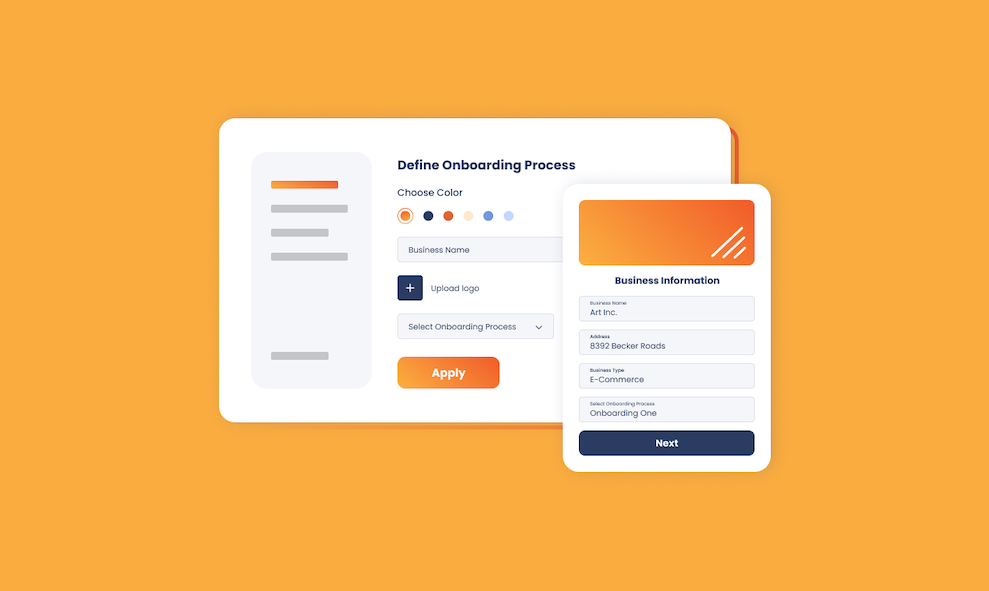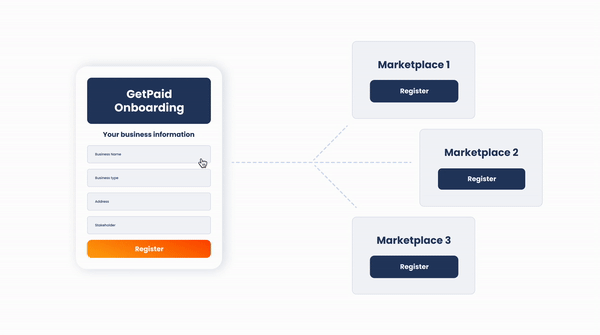How to run merchant onboarding as a competitive advantage

When looking at accepting payments it is often that we think about checkouts and payment methods and less about merchant onboarding or KYC/KYB. Looking at the latter, one can understand why checkouts are more attractive to deal with as they are connected to a value transaction.
Nevertheless merchant onboarding is the first step in every platform or marketplace's payments journey. And even more importantly, it's the first impression of a merchant about your services. That’s why in this article, we will learn how to leverage merchant onboarding to a competitor's advantage, why it’s more important than you think and how it can even bring you more revenue.
What is merchant onboarding and why you need it
Platforms and marketplaces know very well that every time a merchant applies to be a seller on their solution, they need to ensure a proper KYC/KYB process to make sure that the company is sound, real and actually sells the products/services they are proclaiming.
Historically, this has been a cumbersome process as it involves collecting a broad range of merchant information like tax ID, beneficial owners, address details and much more. Information which is not easily accessible for businesses and requires a lot of time investment.
Before the e-commerce boom, this process was mainly steered by pen and paper, which made the application very slow. It often took several weeks until a merchant got approved since the checking was also done manually.
With new age payment providers the process got digital as in today's time most onboardings are run via an online application form. But slow approval speeds are still very present problems. Especially, when merchants are not supported along the line with a rather general solution involving several breaks between the platform environment and payment provider. Depending on the provider the approval can take several days up to two weeks.
One can see that this runs against the incentives of a platform who just wants to bring merchants as fast as possible to the solution without breaching any KYC requirements.
How to make a difference
With this in mind, it became clear that we have to transform our thinking about onboarding. Rather than seeing it as a means to an end, we have to interpret it more as an important feature, which is part of our offering and value proposition. A gateway to stand out against competition laying the foundation for a first good impression. Now let's take a look at how we at getpaid are solving for speed.
Process Customization
Let's start with the obvious advantages of increased customization. Not all platforms are built the same way. A travel platform may have different requirements due to the classified high risk business than a ticketing platform. Some operate with very different company sizes while others only operate with gigworkes or SMEs, which usually have less regulation applied.
And while some information points are non-negotiable (due to regulation), others come down to what level of risk profile, processing speed and regional coverage you’re aiming for.
We see that catering for the right merchants and setting is extremely important in increasing speed and overall experience. Being flexible in processes allows platforms to apply different onboarding journeys to different types of merchants - depending on size, industry and even goods they are selling.
A potential solution could apply minimal input fields for smaller, simple companies selling certain goods and fully fledged onboarding for complex, bigger businesses. Or you could apply a waterfall principle where you collect the absolute necessary information, allow the merchant very fastly to accept payments, but withhold payouts until every document is delivered. There are countless ways to drive up speed without breaching regulation and with the mentioned approaches you are even able to offer same day processing.
UX
Level of customization is also relevant for UX. Oftentimes, onboarding feels like a rigid third party process where you have less control over branding elements, colours, look and feel. But, since it's the first experience a merchant has when coming to your platform, it is probably one of the most important ones.
The ability for logo placement, color adjustment, form type and even style of input fields matters, because it is often the platform who knows its merchants best. Providing an end-to-end consistent experience will reduce customer confusion and drive up conversion leading to faster onboarding times.
Status Updates and Support
Status updates have become a standhold in our daily life. Whether we are waiting for an Uber or checking projects in our apps. Surprisingly onboarding of merchants is often not supported by status updates.
In many solutions merchants file an application and don’t get real time support or feedback of what information points or documents are lacking. This has been historically a major factor for driving up complications and time to first sale.
Merchants are not experts when it comes to legal issues, so ensuring a proper feedback loop with them is crucial. Tracking down status of single documents, input fields and process stages can thus deliver more clarity. Furthermore, it is crucial to provide additional services like sending reminder mails (with relevant instructions), offering video chat support or allowing merchants to instantly return to an auto-saved application state in the event of a pause or temporary cancellation (eg. caused by a distraction). The more a platform can react to a specific situation, the more actionable it can be and thus drive up conversion.
One database
This approach may seem counterintuitive at first glance, but makes a lot of sense when accounting for the fact that a lot of merchants are active on many platforms and marketplaces at the same time.
A merchant might use Shopify for his online shop and Amazon, Allegro, Otto for selling the actual goods. That's four different platforms/marketplaces requiring four different onboarding processes. Although the data has been already collected and approved with the first application.
Breaking these data silos without interfering with the platform's data protection is important. Thus, by leveraging getpaid’s merchant database, platforms and marketplaces can resort to a potential onboarding data set and use it for their KYC purposes. This way one is able to offer instant onboarding to merchants who have already gone through the process in previous times.

Bringing merchant onboarding to the next level
Transforming our view on onboarding is essential in driving up conversion and speed. In today’s hyper competitive times, a standardized digital process is often not sufficient anymore. Especially when it comes to optimizing for time to first sale.
Therefore platforms should think about implementing super-customized processes, a high degree of transparency and innovative features like shared databases. By using these factors a platform can use onboarding as a competitive advantage which translates into additional revenue for them due to increased speed and less operational hassle.


